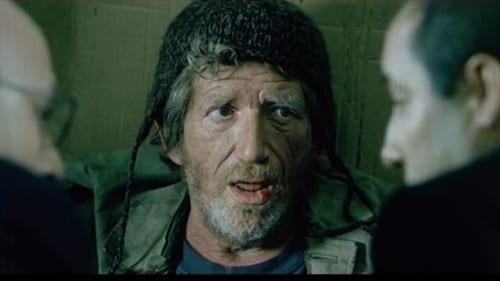
Editor

The Christmas of 1944. The Pásztor family (father, mother, four daughters and a grandchild), are spending the holidays at their country farm. Péter, mothers apple of the eye, soon arrives, and has no objections when his soldiers uniform is made to disappear during the night. The Soviet army, arriving in the footsteps of the fleeing Hungarian army, is commandeering. At night, the soldiers turn up at the house where young women are abiding.

Verő
Eckermann (Laszlo Kistamas) is a listless computer whiz who spends most of his time lounging in a bathtub holding imaginary conversations with cartoon characters usually more popular with children than grownups. He has some friends who want to use his skills to steal some money from a local gambling joint. He works out a scheme for his friends and returns to his tub. At some point along the way, he is joined in the water by a lovely Czech refugee, who (perhaps inadvertently) makes it possible for him to die there.

Gyerzsimorda

1944. At the end of the war ensign Bojtár gets from the captivity of the partisans into that of the Hungarian Nazi and he escapes at the price of a quasi-murder. He has to hide, the more so because his victim did not die and searches for him.

Brenner József

Srác
It is a tragedy, set among low-lifes on the outskirts of Budapest. Dramatic Exchange describes it as "Widely considered to be the most important Hungarian play of the last 20 years". The odd title of the play refers in the first instance to the chicken heads that an old woman feeds to her cat. However, it can also be taken to refer more broadly to the obtuse behaviour of the main characters in the play. The play is an odd mixture of pathos and nihilism, written against the bleak background of Stalinist totalitarianism from which Hungary was emerging. As with much modern drama, there is no hero in the play. The only noble behaviour that one can find belongs to one of the characters in the past, when he was a child, but he is no longer as he was. The hint that what once existed might be achieved again is the only faint ray of hope in a very bleak view of the human condition.



